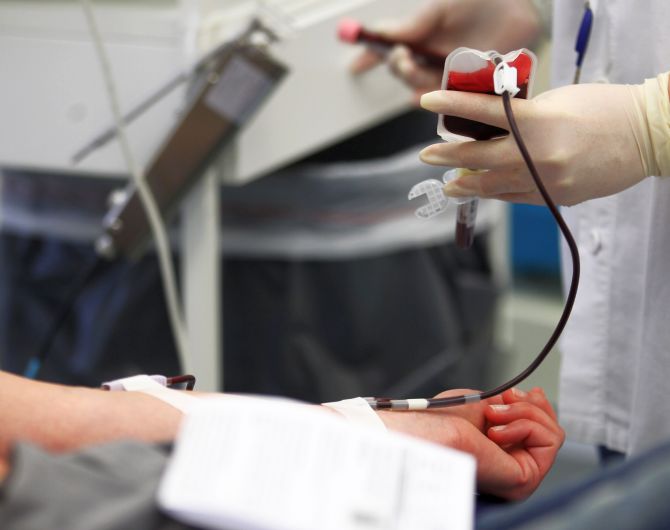Cuttack: In what could be termed as ‘utter recklessness’ of the state Health department and some hospital authorities that has claimed the lives of several thalassemic kids through transfusion of infectious blood.
According to sources, several children suffering from thalassemia have been infected with deadly HIV, hepatitis B and hepatitis C virus after receiving blood from state government-run blood banks, alleged Odisha Thalassemia Care Society.
Society secretary Nirakar Panda claimed that at least four children have died after taking infectious blood from government blood banks in state in the last 10 years.
“The deceased were from Choudwar, Jajpur and Bhubaneswar. Two children died at Bhubaneswar Municipal Corporation hospital in 2009 while a six-year-old died in Choudwar area in 2013. Similarly, a seven-year-old died in Jajpur,” Panda said.
According to him, a minor from Jagatsinghpur has been infected with HIV after receiving blood from government blood bank recently. The minor is under treatment. This apart, six children suffering from thalassemia have been infected with the deadly virus after taking blood recently, he said.
“The parents of these children have been tested HIV-Negative. So, it is crystal clear that they have been infected with the virus through blood transfusion. My son, a thalassemia patient, has contracted hepatitis C virus after blood transfusion. There were reports that at least 70 children suffering from thalassemia have been infected with HIV, hepatitis B and hepatitis C after blood transfusion in Balasore,” Panda claimed.
It is worth mentioning here that around 25,000 children in state are suffering from thalassemia. These children require blood transfusion at regular interval to survive.
According to sources, most of the government blood banks in state do not have Nucleic Acid Testing Polymerase Chain Reaction (NAT PCR) machine to detect HIV and hepatitis virus in collected blood units. The blood banks of only three medical colleges in state and the Capital Hospital have the NAT PCR machine. It is learnt that at least 117 blood units out of 47,000 were found with HIV and hepatitis virus at the blood bank of SCB Medical College and Hospital here last year.
“Most of the children suffering from thalassemia are from Balasore, Koraput, Jajpur, Keonjhar and Baripada area of the state. However, the blood banks in these areas are yet to have NAT PCR machine,” Panda said.
Panda claimed that the Orissa High Court while dealing with a PIL had directed the state government to provide NAT PCR machine to all blood banks in Odisha.
Subsequently, the state government had constituted a committee to look into the issue. The committee had visited some blood banks in Uttar Pradesh and Karnataka to collect information with regard to the functioning of NAT PCR machine. When contacted, SCBMCH Transfusion Medicine department head Pankaj Parida refused to comment on the issue saying that he cannot do so without the government’s order.
Rajya Rogi Adhikar Manch president Amiya Bhusan Biswal said they have raised issues related to NAT PCR machine and infected blood with the state government but precious little has been done in this regard.
“If the state government is unable to purchase NAT PCR machine for all blood banks, they can arrange fourth generation ELISA test machine for blood banks to provide safe blood to thalassemia patients. The state government had recently convened a meeting to deliberate on the issue,” said a doctor at the Haematology department of SCBMCH.

